New Orleans Beignets
Enjoy these light as a feather and sweet as sugar New Orleans Beignets with a café au lait to feel like you’re right there in Jackson Square. An excellent choice for either breakfast or dessert.
If you’ve ever visited New Orleans, chances are you’ve enjoyed the famous beignets at Café du Monde. Established in 1862, the café is a traditional French coffee shop serving only beignets and beverages.
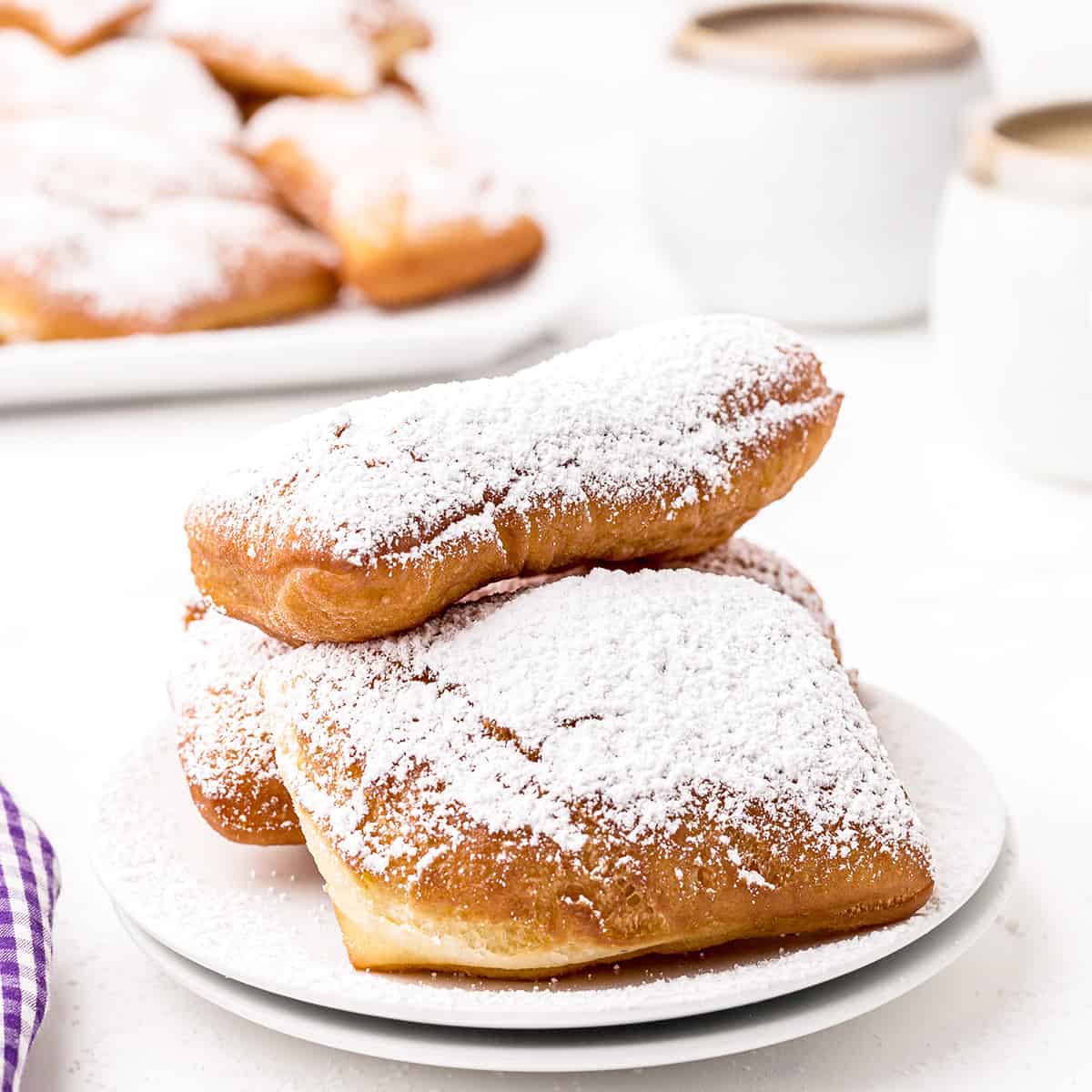
These delicious pillows of dough are fried until golden brown, served piping hot with a light as air interior, and practically buried in powdered sugar. They’re a genuine New Orleans specialty.
If you’d like to make this famed southern delicacy in your own kitchen, I’m here to help! They’re no more than a simple yeast dough, cut into squares, fried, and coated with sugar. Your family is going to love these!
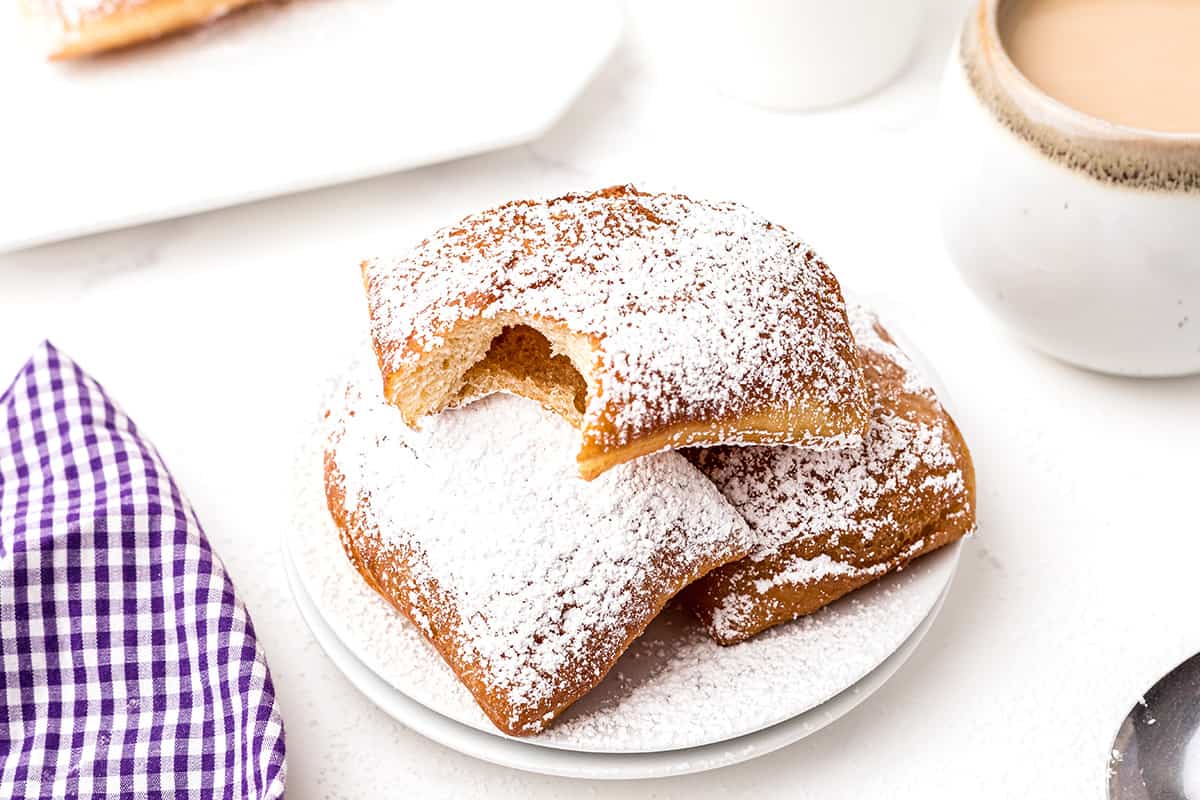
🤔 What is a Beignet?
Beignets are a French pastry made from yeast dough or pâte à choux cut into small squares and deep fried, then sprinkled generously with powdered sugar.
🥘 Ingredients You’ll Need
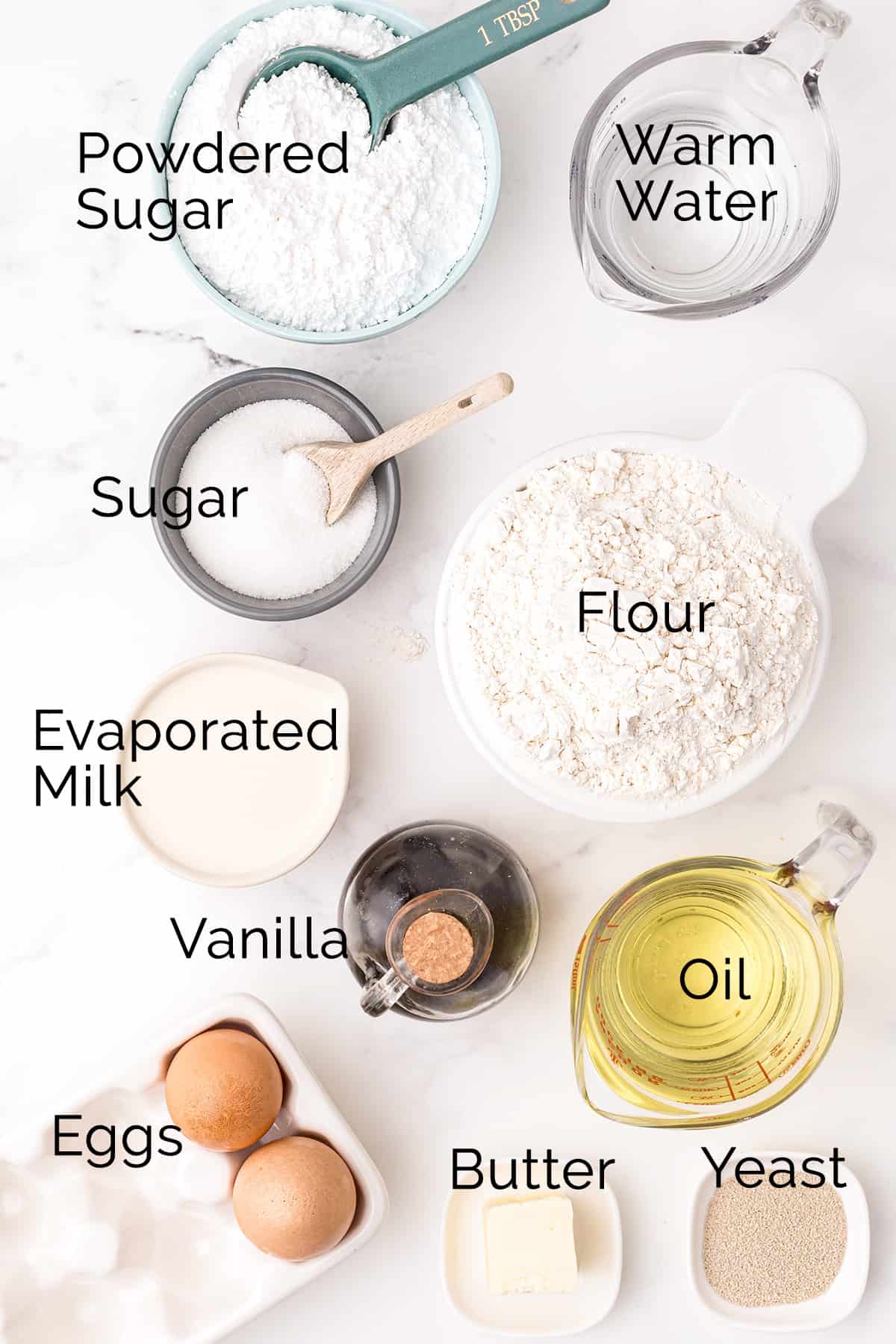
This post contains affiliate links. Lana’s Cooking is reader-supported and earns a tiny commission at no extra cost to you when you shop from our links.
- Water (Warm water activates the yeast and starts it working)
- Active Dry Yeast (yeast is a living organism that makes dough rise; check your yeast packet to make sure it hasn’t expired)
- Sugar (feeds the yeast as it reactivates)
- Eggs (binds the dough together)
- Evaporated Milk (adds a richness to the dough and creates that pillow soft inside)
- Vanilla (lends its classic flavor to the finished beignets)
- Butter (makes a richer dough)
- Flour (the basis of the dough; bread dough works as well as all-purpose)
- Oil (use any oil suitable for deep frying; cottonseed is ideal if you can find it, but vegetable or canola work well, too)
- Powdered Sugar (the traditional topping for beignets)
You’ll find detailed measurements for all ingredients in the printable version of the recipe at the bottom of this post.
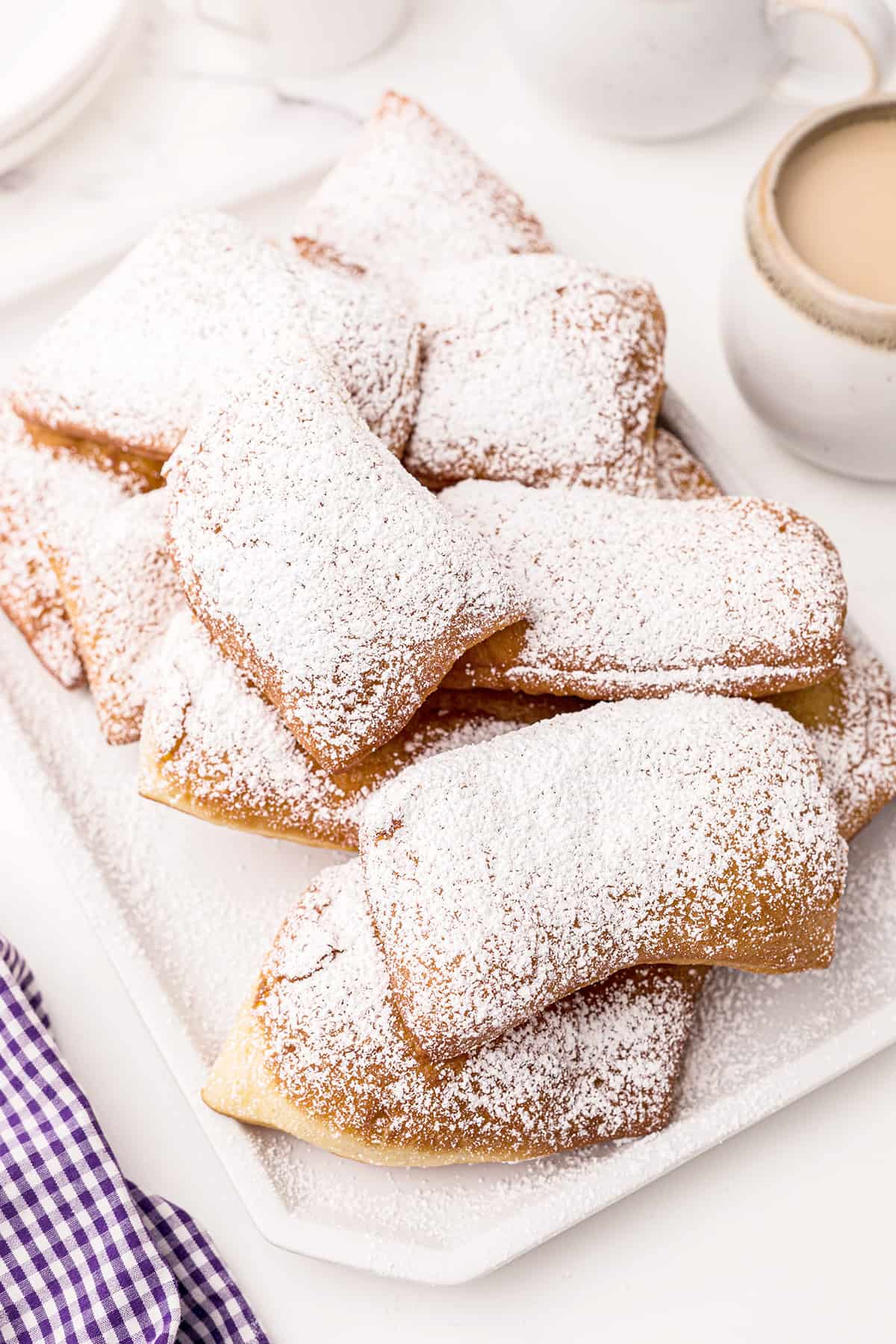
🔪 How to Make New Orleans Beignets
Proof the Yeast
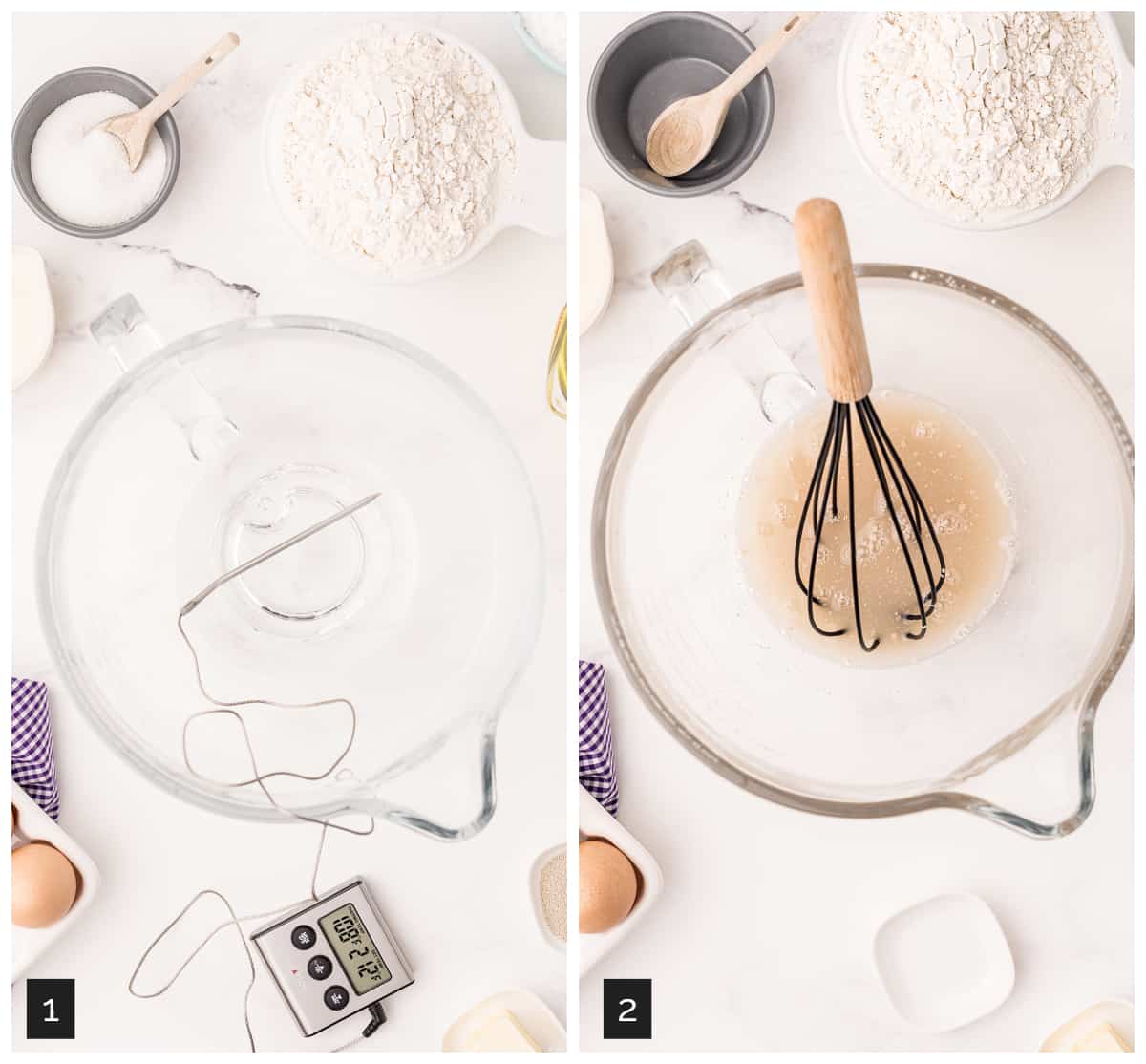
STEP 1. Add the warm water to the bowl of a stand mixer.
Note: When adding the warm water, make sure the temperature is closer to 115 degrees as the water will cool quickly when it contacts the bowl.
STEP 2. Add the yeast and sugar to the water and whisk to combine. Let the yeast mixture sit for 10 minutes until active and frothy.
Note: Make sure that the date on your yeast packet is current. If the yeast has not foamed up after 10 minutes, it means that the yeast is inactive and won’t work for your recipe. Discard the yeast and water and start over with fresh, active yeast.
Lightly Beat the Eggs

STEP 3. While the yeast is proofing, crack the eggs into a separate small bowl and lightly beat them. Add the vanilla and evaporated milk.
Mix the Dough
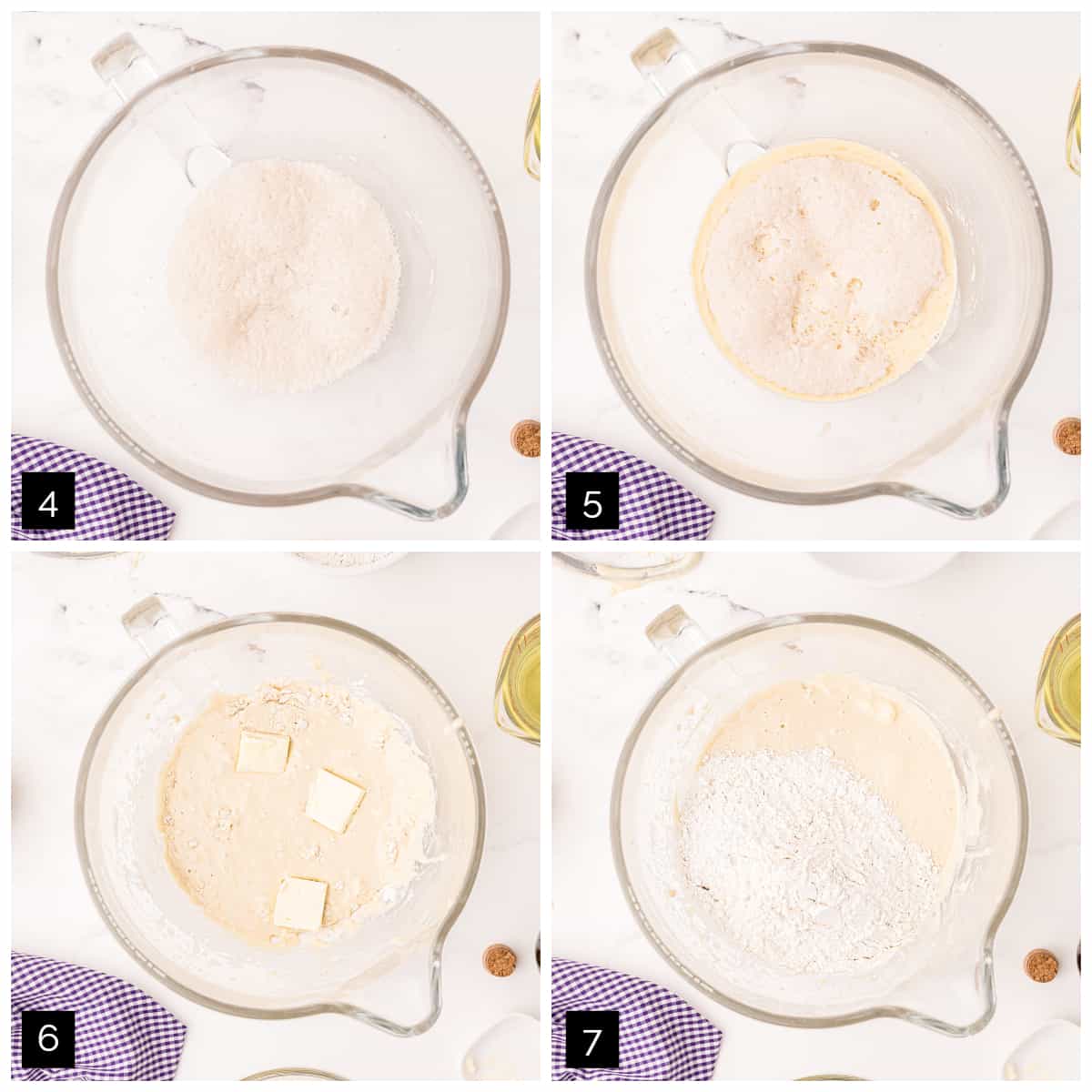
STEP 4. Place the bowl on the mixer stand with the dough hook attached. Add the egg and milk mixture to the yeast. Mix on low speed for about 1 minute, or until well combined.
STEP 5. Add half the flour and continue mixing on low speed.
STEP 6. Add the butter.
STEP 7. Add the remaining flour. Mix on low until the dough forms a ball.
Note: You’ll know the dough is ready when it becomes smooth and is pulling away from the sides of the bowl.
Let the Dough Rise
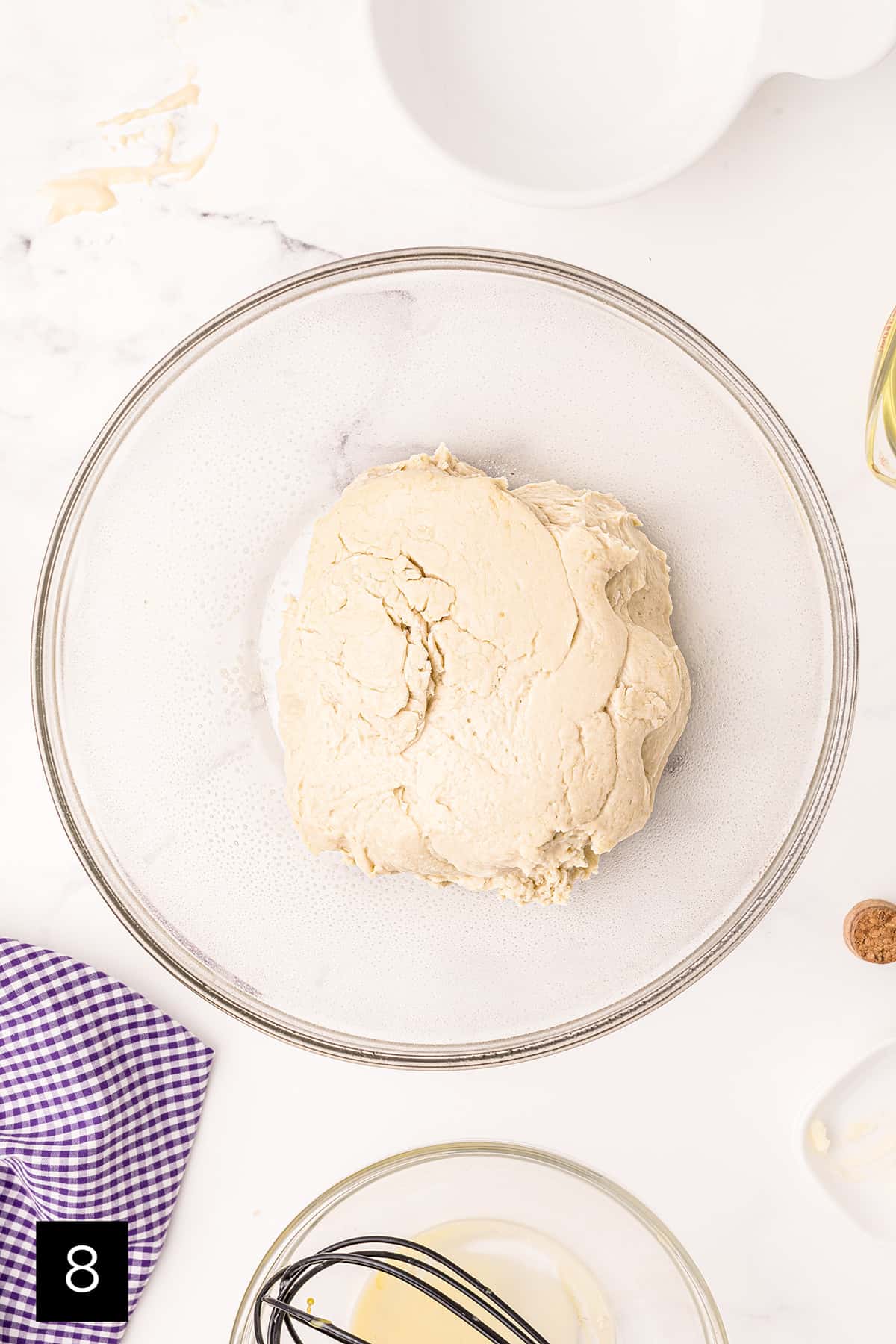
STEP 8. Transfer the dough to a lightly oiled bowl, turning so that the top side is coated with oil. Cover and place the dough in a warm place until it has doubled in size (approximately two hours).
Roll and Cut the Dough
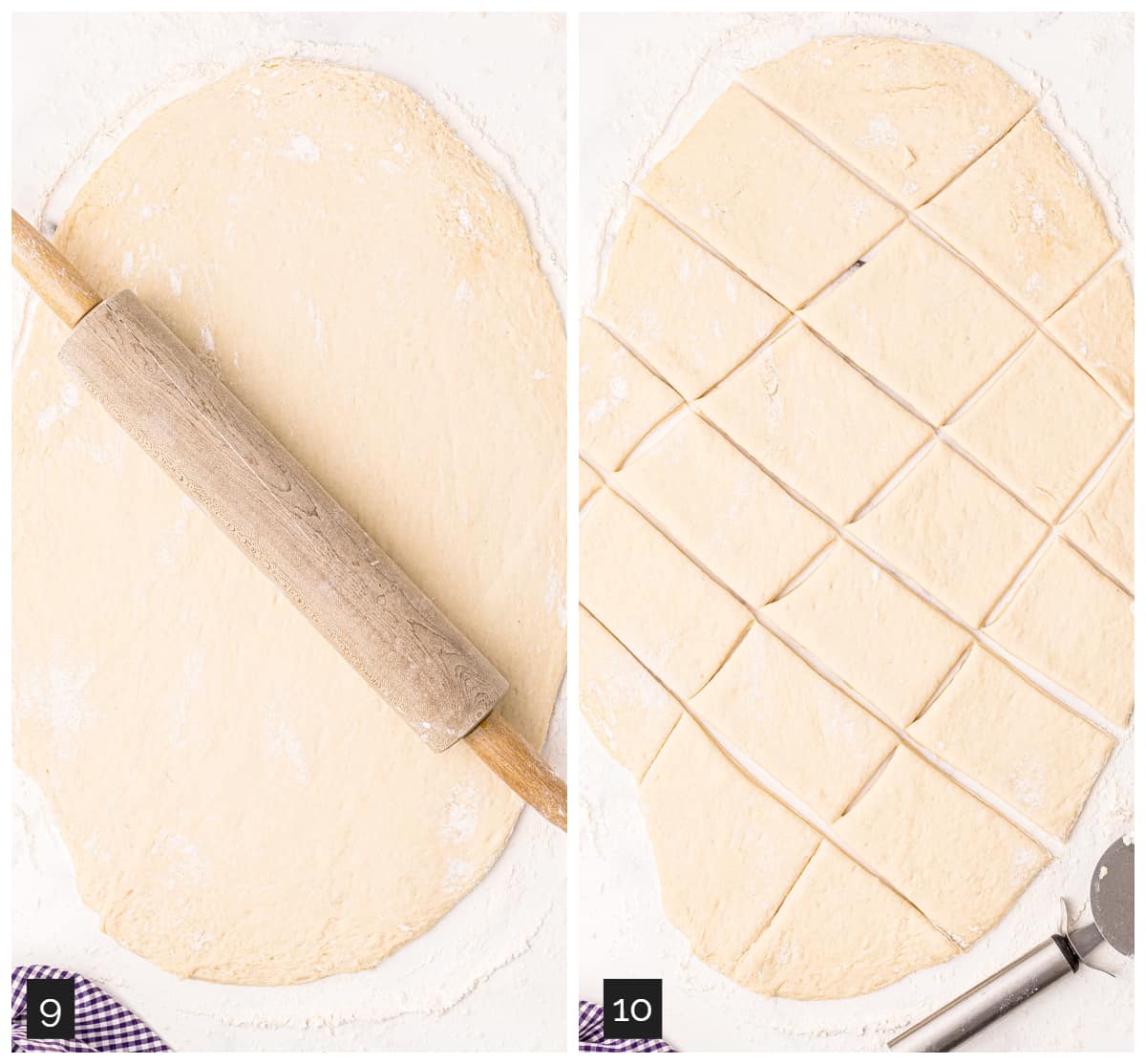
STEP 9. Lightly flour a large surface and transfer the dough from the bowl. Sprinkled the top of the dough and the rolling pin with additional flour. Roll out the dough to a thickness of 1/4- to 1/2-inch.
STEP 10. With a sharp knife or pizza cutter, cut the dough into about 2 1/2- to 3-inch squares.
Fry the Beignets

STEP 11. In a Dutch oven or deep cast iron skillet, add oil to a depth of 2-3 inches. Heat to 350 degrees F.
STEP 12. Add the dough squares, a few pieces at a time, without overcrowding the pot. Fry for about 1 minute per side.
Top with Powdered Sugar
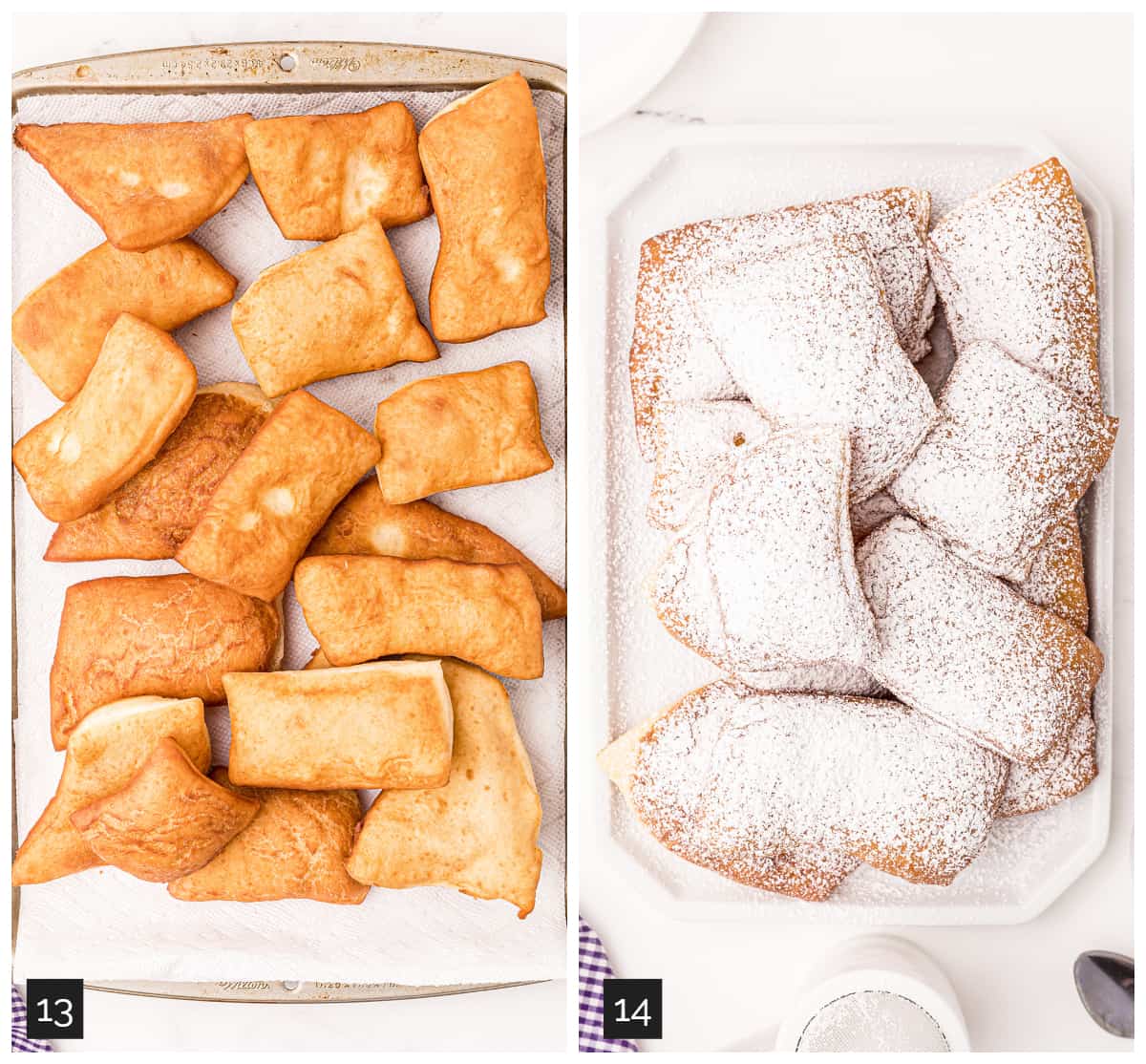
STEP 13. Use a large slotted spoon or spider to remove the cooked beignets from the hot oil and drain on a paper towel lined baking sheet. Repeat until all the dough is used.
STEP 14. Transfer beignets to a serving plate and top heavily with powdered sugar. Serve immediately.
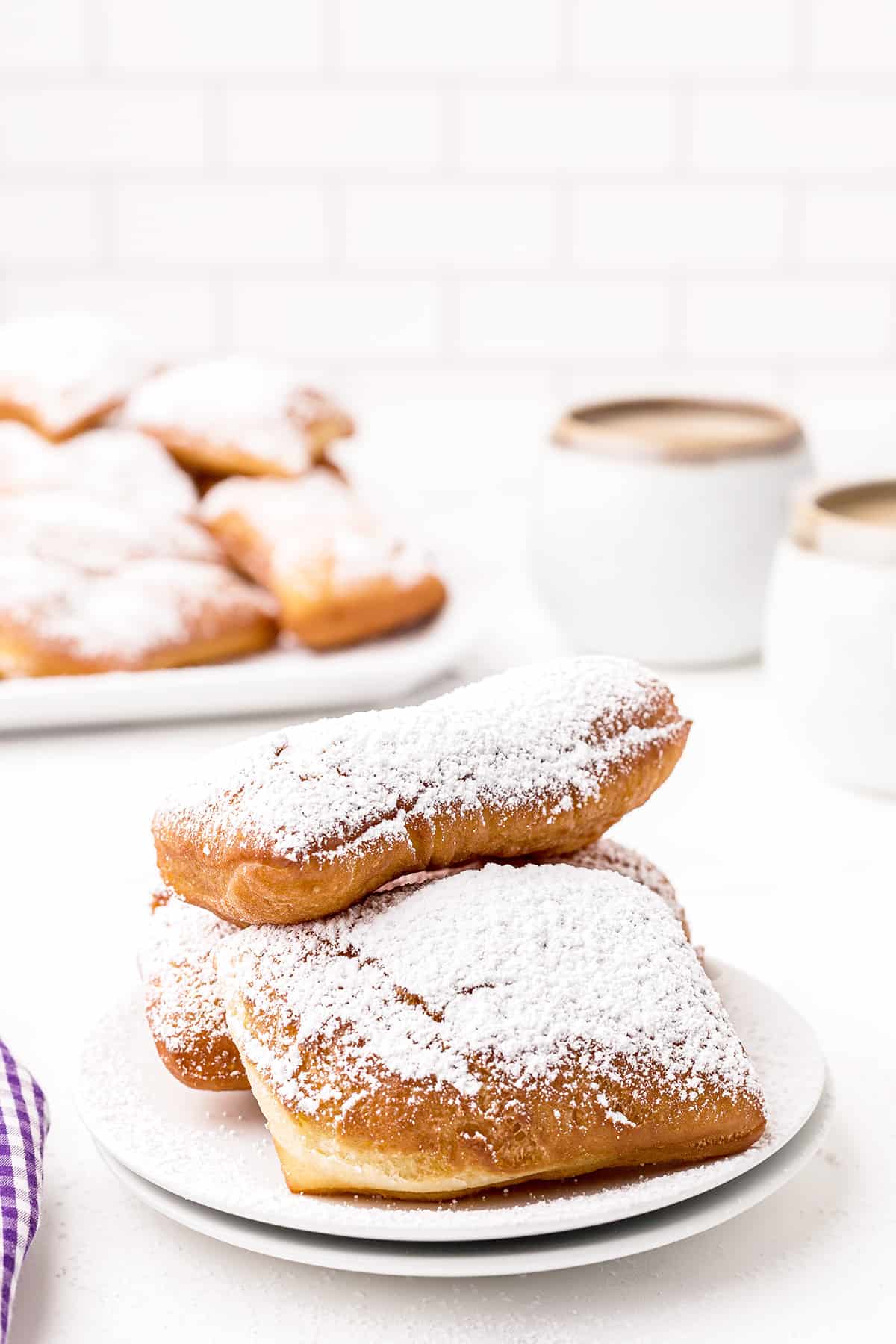
❗ Recipe Success Tips
- When adding the warm water, make sure the temperature is closer to 115 degrees as the water will cool quickly when it contacts the bowl.
- Make sure that the date on your yeast packet is current. If the yeast has not foamed up after 10 minutes, it means that it’s inactive and won’t work for your recipe. Discard the yeast and water and start over with fresh, active yeast.
- You’ll know the dough is ready when it becomes smooth and is pulling away from the sides of the bowl.
- For this recipe, choose an oil suitable for deep frying. That is, an oil with a high smoke point. Cottonseed oil is ideal if you can find it, but vegetable oil or canola oil work well, too.
❓ Questions About Beignets
Beignets and doughnuts have lots of similarities but doughnut recipes tend to have more eggs and, of course, they’re a different shape. Beignets are lighter with an airy center. Both are delicious!
Unfortunately, no. Beignets are meant to be served and enjoyed while still warm. They don’t keep well.
A 2-inch rectangle is the traditional size and is what you’d be served at Cafe du Monde. However, you can make them any size you like. Mini beignets are really fun!

Questions? I’m happy to help!
If you have more questions about the recipe, or if you’ve made it and would like to leave a comment, scroll down to leave your thoughts, questions, and/or rating!
Thanks so much for stopping by!
📖 Recipe
Want to save this recipe?
Enter your email below and get it sent straight to your inbox.

New Orleans Beignets
Ingredients
- ¾ cup warm water 110-115 degrees F
- 1 ¼ teaspoons active dry yeast (1 packet)
- 3 tablespoons sugar
- 1 large egg
- 1 egg yolk
- ½ cup evaporated milk
- 1 teaspoon vanilla extract
- 3 tablespoons salted butter
- 3 ½ cups all-purpose flour
- 4 cups oil vegetable oil or canola oil
- 2 cups powdered sugar
Instructions
- Add the warm water to the bowl of a stand mixer.
- Add the yeast and sugar to the water and whisk to combine. Let the yeast mixture sit for 10 minutes until active and frothy.
- While the yeast is proofing, crack the eggs into a separate small bowl and lightly beat them. Add the vanilla and evaporated milk.
- Place the bowl on the mixer stand with the dough hook attached. Add the egg and milk mixture to the yeast. Mix on low speed for about 1 minute, or until well combined.
- Add half the flour and continue mixing on low speed.
- Add the butter and the remaining flour. Mix on low until the dough forms a ball.
- Transfer the dough to a lightly oiled bowl, turning so that the top side is coated with oil. Cover and place the dough in a warm place until it has doubled in size (approximately two hours).
- Lightly flour a work surface and transfer the dough from the bowl. Sprinkled the top of the dough with additional flour. Roll out the dough to a thickness of ¼- to ½-inch.
- With a sharp knife or pizza cutter, cut the dough into about 2 ½- to 3-inch squares.
- In a Dutch oven or deep cast iron skillet, add oil to a depth of 2-3 inches. Heat to 350 degrees F.
- Add the dough squares, a few pieces at a time, without overcrowding the pot. Fry for about 1 minute per side.
- Use a large slotted spoon or spider to remove the cooked beignets from the hot oil and drain on a paper towel lined baking sheet. Repeat until all the dough is used.
- Transfer beignets to a serving plate and top heavily with powdered sugar. Serve immediately.
Notes
Nutrition Information
Nutrition information is calculated by software based on the ingredients in each recipe. It is an estimate only and is provided for informational purposes. You should consult your healthcare provider or a registered dietitian if precise nutrition calculations are needed for health reasons.

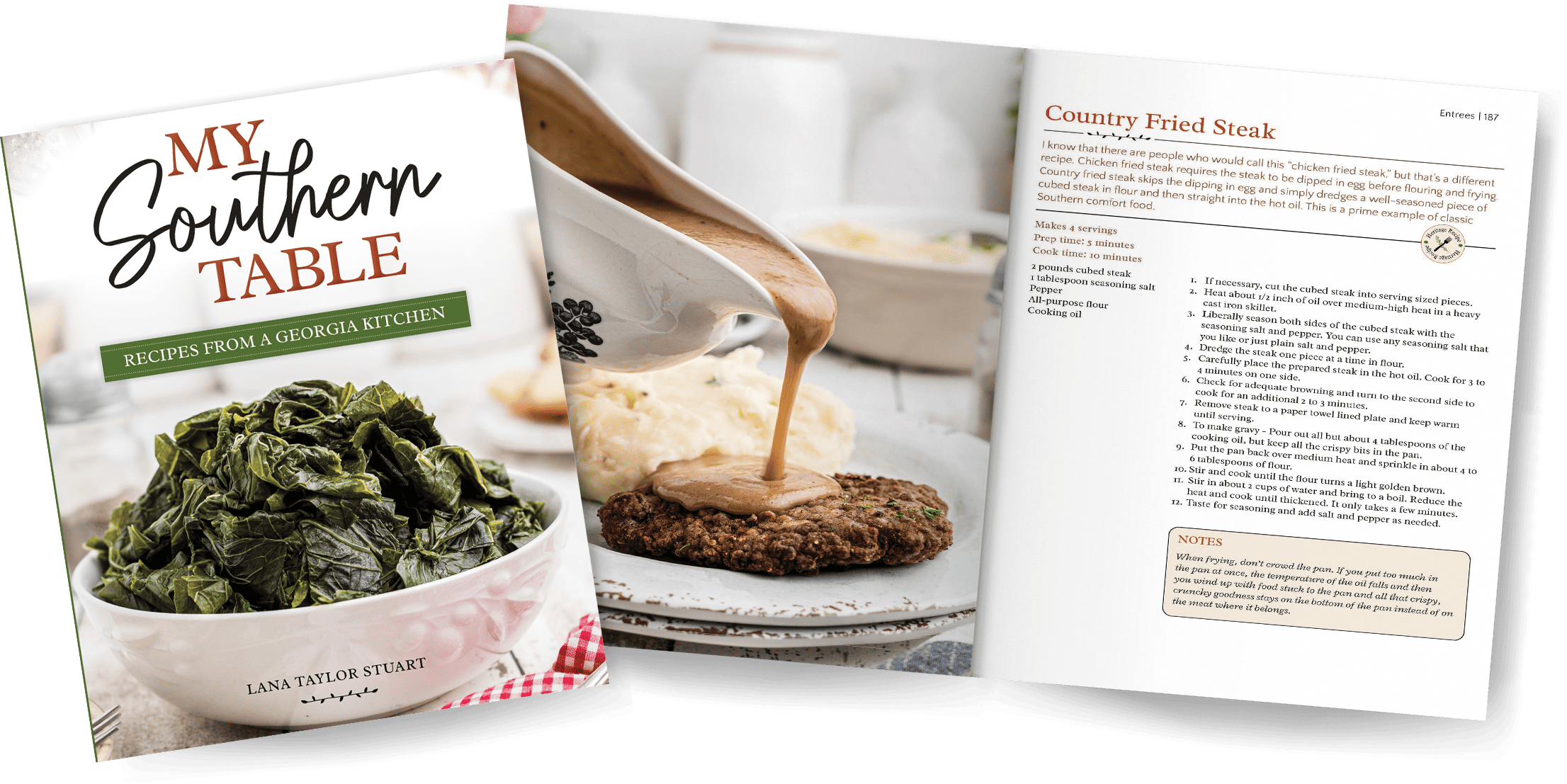


Have you ever made the Beignets with Pate Choux? It makes a much lighter Beignet. Then you can eat more of them!!!
I haven’t, David, but I’m sure they would be delicious!
Your beignets are perfection!
Thanks Carolyn! Hope you’ll give them a try.
Looks delicious! Make these for me. Please.
They’re so easy to make! Also easy to eat too many :-)